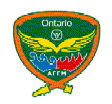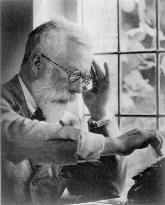 |
Organizing
Committee
W. John Braun (Statistical and Actuarial Sciences,Western Ontario)
David Martell (Forestry, Toronto)
Rick Schoenberg (Statistics, UCLA)
Overview
Forest fires are a natural component of many of Canada's
forested ecosystems but they also pose threats to public safety, property
and forest resources. Every year, forest fires cause millions of dollars
worth of damage and force the evacuation of some communities. Such
problems will be exacerbated as people establish more homes and cottages
in and near forested areas and climate change alters forest vegetation
and weather.
The forest fire research community has made steady progress
over the past four decades, in increasing our understanding of the
nature of forest fires. Mathematical models for predicting fire occurrence
have been developed. Deterministic spread models are being implemented
for planning purposes and for use in computer simulations to aid in
prediction of the future behavior of existing and potential fires.
Such models are used in conjunction with queueing models in the strategic
management of fire-fighting resources such as aircraft and fire fighters.
Although much has been learned about the interactions of weather and
fuel-types and their effects on fire spread, and intensity a large
number of questions remain. For example, how can jump-fires ignited
by burning bark and other firebrands carried by the wind, in advance
of a spreading fire, be modelled as a stochastic process? How can
the fire hazard in particular areas be estimated reliably? What are
the potential impacts of climate change on fire regimes and fire management
systems?
Statisticians can play a role in helping to answer these
and other questions. Stochastic models, and point process models in
particular, should prove to be very useful in attacking these kinds
of problems. In recent years, point process intensity models have
been successfully used in the study of earthquakes and volcanoes.
Related intensity models have high potential in the forest fire context.
For example, the times and locations of lightning strokes and fire
ignitions can be viewed as a bivariate point process. A mutually exciting
process is a possible model for this process where the lightning process
drives the ignition process, but where the ignition process itself
may have a self-exciting component representing the generation of
jump-fires. The parameters of such models can be estimated efficiently
using maximum likelihood; covariates such as fuel-type and moisture
can be accounted for, and a form of residual analysis can be performed
to assess the appropriateness of such models for given data. Interacting
particle system models offer a way to stochastically model the spatio-temporal
dynamics of a forest fire.
The purpose of the proposed workshop is to bring forest
fire researchers and point process modellers and other interested
statisticians together. The objective is for members of each group
to inform the other group of open problems and possible solutions.
Invited Speakers and Abstracts
Larry Bradshaw,
Fire Sciences Lab, MT
David Brillinger,
UC, Berkeley
Dave Butry, Forestry
Sciences Lab, North Carolina
Steven G. Cumming,
Boreal Ecosystems Research
Andre Dabrowski,
University of Ottawa
Charmaine Dean,
Simon Fraser
Sylvia Esterby,
UBC-Okanagan
Marie-Josee Fortin, Toronto
Fuensanta Saura Igual ,
Jaume I, Spain
Marcia Gumpertz,
North Carolina State
Gail Ivanoff,
University of Ottawa
Ed Johnson, University
of Calgary
|
David Vere-Jones,
Victoria University of Wellington, NZ
Rafal Kulik, University
of Ottawa
Reg Kulperger, UWestern Ontario
Rob McAlpine,
OMNR
Haiganoush Preisler,
Southwest Research Station, USDA Forest Service
Dean Slonowsky,
University of Manitoba
David Stanford,
University of Western Ontario
Brian Stocks, CFS
Rolf Turner, University
of New Brunswick
Domingos Xavier Viegas,
Coimbra, Portugal
Douglas Woolford, University
of Western Ontario
Mike Wotton, Faculty
of Forestry, University of Toronto
|
Registration fee:
Reg'n fee $100 CDN, $25CDN for PDF's and Students (includes
banquet on Thursday May 26)
Mailing List
Back to top
|
 |


